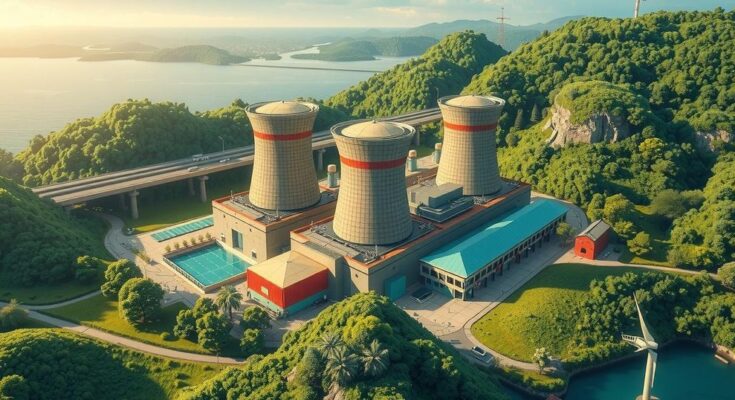Iran has achieved mastery in nuclear science, ranking among the world’s 18 recognized nuclear states, according to AEOI chief Mohammad Eslami. Despite global resistance, Iran has advanced its nuclear program for applications in energy, healthcare, and agriculture. Support from religious leaders and a focus on peaceful nuclear technology highlights a commitment to national progress.
TEHRAN – Iran has demonstrated substantial advancements in its nuclear program, with Mohammad Eslami, the head of the Atomic Energy Organization of Iran (AEOI), announcing that the nation has achieved full mastery of nuclear science. Iran is now among the 18 countries recognized for having an established nuclear industry. Eslami made this announcement during a visit to Qom, where he met with senior clerics to discuss the applications of nuclear technology in various sectors.
Speaking at the meeting, Eslami highlighted that Iran’s nuclear energy program is comparable to those in developed nations, despite facing continued opposition from global powers. He affirmed, “Today, the Islamic Republic of Iran has full mastery of nuclear science and is among the select group of 18 countries with an established nuclear industry.”
Eslami also pointed out the resilience of Iran’s nuclear sector in the face of adversity from powerful nations, noting that the country is subjected to strict oversight by the International Atomic Energy Agency (IAEA) due to its nuclear advancements. He stated, “The global hegemonic system opposes Iran’s access to advanced technologies, including nuclear energy.”
Contrary to the prevalent challenges, Iran has persistently advanced its nuclear program, which Eslami attributes to the dedication and innovation of Iranian scientists and engineers. He acknowledged the consistent support of Ayatollah Seyyed Ali Khamenei, the Leader of the Islamic Revolution, in steering Iran’s nuclear initiatives.
The applications of Iran’s nuclear program extend beyond electricity generation. Eslami emphasized its significance in healthcare, especially in cancer treatments, and its contributions towards environmental sustainability. He also noted the growth of Iran’s nuclear industry over the past 50 years, which now employs over 25,000 specialists across multiple sectors.
Eslami further discussed the role of nuclear technology in enhancing agricultural productivity, asserting its potential for improving food security and sustainability. During the discussions in Qom, senior religious leaders voiced their support for Iran’s peaceful development of nuclear energy and encouraged leveraging the nation’s rich natural and human resources for progress.
The clerics emphasized the importance of continuous investment in nuclear technology and other advanced scientific fields to ensure sustainable national development. This ongoing support reflects a commitment to harnessing the benefits of nuclear advancements for the collective progress of the nation.
Iran’s nuclear program has been a topic of significant attention and concern on both national and international levels. Since the early stages of its development, the program has encountered resistance from major world powers, leading to stringent monitoring by the International Atomic Energy Agency (IAEA). However, Iran has made notable strides in nuclear technology, considering both its energy needs and its applications across various sectors, including medicine and agriculture. The government has positioned its advancements as not only a matter of national pride but also a means to leverage its resources for broader socio-economic development.
In summary, Iran’s nuclear program has achieved significant milestones, elevating the nation to the ranks of recognized nuclear states. Despite facing international scrutiny and opposition, Iran remains committed to advancing its nuclear capabilities for peaceful purposes, including healthcare and agriculture. The support from religious leaders and the government’s focus on harnessing natural resources signifies a concerted effort towards sustainable national development. Overall, Iran’s advancements in nuclear technology reflect a blend of scientific dedication and strategic resource management.
Original Source: www.tehrantimes.com




